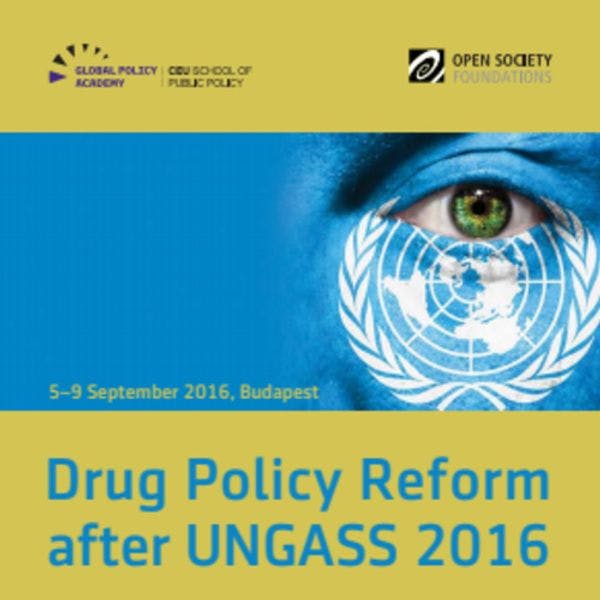Réforme de la politique des drogues après l’UNGASS de 2016 : Perspectives, propositions, contraintes
Ce cours traite de la période pré- et post-UNGASS, identifie les leçons apprises et envisage les étapes suivantes aux niveaux national, régional et mondial. Pour en savoir plus, en anglais, veuillez lire les informations ci-dessous.
Abonnez-vous à l'Alerte mensuelle de l'IDPC pour recevoir des informations relatives à la politique des drogues.
The four-day professional development course Drug Policy Reform after UNGASS 2016: Prospects, Proposals, Constraints is a timely follow up from the landmark April 2016 United Nations General Assembly Special Session on Drugs – an event which showed intense but frustrated pressure for reform and profound division over future direction. International drug policy is at a crucial turning point, with opportunities and also risks posed by fragmentation and dissent. This course refl ects on the pre- and post-UNGASS period, identifi es lessons learned and considers next steps at national, regional and global level.
Health, crime, human rights, development and new challenges were identifi ed by the UNGASS as key thematic areas and these will continue to frame priorities, debate and advocacy going forward. Each area will be considered in dedicated sessions that will unpack and assess evidence, best practice, strategies for reform, as well as spoilers and obstacles to change.
Course objectives
The course is intended to strengthen and diversify the knowledge base and networks of NGOs, officials, journalists and others engaged in research and advocacy on drug policy. With a view to supporting inter-regional and international experience sharing and collaboration, we encourage applications from around the world. For applicants with a background in drug policy, the four days of focused discussion and analysis will support ongoing professional development and provide an opportunity to share experiences.
Information and application here.
